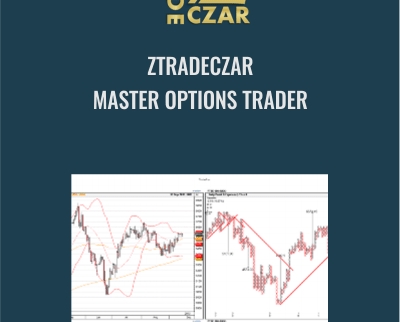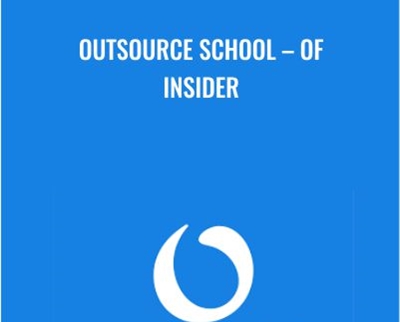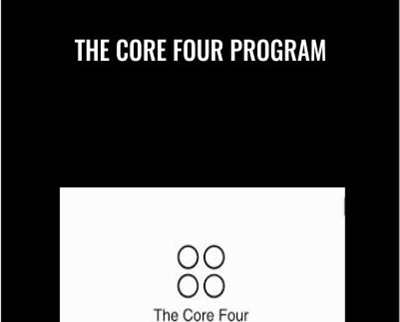Professor Eric G. Strauss – Earth at the Crossroads – Understanding the Ecology of a Changing Planet
$57.00
In StockProfessor Strauss is the perfect guide for exploring the ecological implications of our modern world. As a specialist in urban ecology, he brings classic and cutting-edge scientific studies to bear on his consideration of urban populations, suburban spread, and the ways in which human populations affect and are affected by the ecosystems in which they live.
Description
Buy Professor Eric G. Strauss – Earth at the Crossroads – Understanding the Ecology of a Changing Planet Course at esyGB. You will have immediate access to the digital downloads in your account or your order email.
Professor Strauss is the perfect guide for exploring the ecological implications of our modern world. As a specialist in urban ecology, he brings classic and cutting-edge scientific studies to bear on his consideration of urban populations, suburban spread, and the ways in which human populations affect and are affected by the ecosystems in which they live.
Purchase Professor Eric G. Strauss – Earth at the Crossroads – Understanding the Ecology of a Changing Planet courses at here with PRICE $334.95 $57
Professor Eric G. Strauss – Earth at the Crossroads – Understanding the Ecology of a Changing Planet
But these systems, so important to the world around us, are far from stable. Instead, ecosystems are constantly changed by the pressures of biological, geological, and physical forces. In addition, the rapid growth of human populations and their attendant technologies has created unprecedented forces of ecological change. Only when you look beyond the individual level and observe how populations of different species interact with themselves, with other species, and with their physical environment, as well as how they respond and adapt to change, can you fully understand how life truly works.
Now, with Earth at the Crossroads: Understanding the Ecology of a Changing Planet, you can explore the rich interconnections that make up the great and fascinating web of life on Earth. In this compelling 36-lecture course, behavioral ecologist Eric G. Strauss of Boston College provides you with a comprehensive overview that is a hallmark of the study of ecology. With Professor Strauss as your guide, you’ll investigate the remarkably complex workings of Earth’s biosphere and learn about the myriad forces that shape the world’s habitats, from the movement of water and nutrients within an ecosystem to the reproductive strategies employed by plants and animals around the world.
As you delve into the biosphere’s intricate network of relationships, you develop a deeper appreciation of the rich complexity of the life around you. You’ll also strengthen your understanding of some of the most important debates in current affairs, including questions of climate change, protection of endangered species, and alternative energy sources. Earth at the Crossroads exposes you to the science behind these debates, allowing you to develop your own opinions and back them up with the latest scientific evidence.
Examine Ecology’s Most Intriguing Questions
The key to understanding and bringing to life these relationships lies in the field of ecology. A science that has come into its own during the modern era, ecology helps humans comprehend—and put into a more coherent perspective—the “big picture” of life on Earth.
In Earth at the Crossroads, you examine the same intriguing questions that ecologists themselves contemplate as they study life from this unique perspective:
What forces shape the living systems around us?
How do relationships like predation and competition affect communities of organisms?
What happens when a new organism is introduced into an environment?
How does climate change affect plants and animals in a single ecosystem—or even the world at large?
And perhaps the most crucial question of all:
What role do you as a member of Earth’s living community play, and how can you use your understanding of these complex patterns to ensure that you and your fellow organisms survive and thrive?
The field of ecology is an applied science whose impact can be felt in a range of areas. The knowledge gained from the study of Earth’s living systems has allowed us to
conserve endangered habitats,
more wisely manage our natural resources,
produce higher and healthier yields of agriculture,
better prepare for public health concerns, and
understand how highly artificial environments such as major cities follow the same rules as more “natural” environments.
Understand the Complexity of Life on Earth
Earth at the Crossroads opens with an introduction in which you explore the development of ecology as a scientific discipline distinct from biology and other related areas of study. Through vivid examples and accessible explanations, Professor Strauss explicates the field’s key theories and raises thought-provoking questions that motivate scientists in this vital area of study.
Next, you move into the fundamental topics covered in the field, which are explored in three units:
In lectures 5 through 18, you examine the important forces that impact ecosystems, such as the way energy, nutrients, and water are used and recycled in these systems.
In lectures 19 through 32, you focus on specific ecological interactions and processes, including microevolution, population growth, migration, disease, and coevolution.
In lectures 33 through 36, you consider some of the latest scientific contributions that suggest how we can intervene in ecosystems in a beneficial way.
Throughout the course, you also learn about the remarkable and often surprising ways that organisms compete, coexist, and cooperate:
The interaction of ants and aphids: Living in a relationship not unlike that of the farmer and the dairy cow, ants harvest the nutritious fluid that aphids suck from plants while protecting their wards from predators.
The survival strategies of the Monarch butterfly and its imitators: Monarchs feed on poisonous milkweed, which makes them toxic to predators, a fact they signal with their bright coloration. Other species have developed similar markings to “trick” predators into leaving them alone.
The surprising relationship between wolves, elks, and river ecosystems in Yellowstone National Park: When the park’s wolves were almost hunted to extinction, populations of elk skyrocketed while nearby river ecosystems declined. Freed from the pressure of predation, the elk were able to graze these fragile ecosystems, damaging them significantly. When wolf populations were restored, the elk returned to their traditional habitats, and the river systems revived.
The paradoxical relationship between humans and bacteria: As people increasingly use antibacterial soaps, antibiotics, and disinfectants to protect themselves against microbial disease, they drive these organisms to develop a tolerance to these products, putting human beings at an even greater risk of infection by “superbugs.”
As you explore these fascinating examples, you experience the sense of wonder that is at the heart of the study of ecology.
The Whole Earth: City and Country
Delving deeply into ecology, you quickly see that this field of study extends beyond what we usually think of as “nature.” Ecologists espouse a “whole Earth” view that incorporates both pristine wilderness regions and modern urban settings. From this perspective, the city is simply another form of ecosystem, alive with organisms that are interconnected in complex relationships.
You examine how wildlife adapts to new urban settings, as seen in the example of hawks that thrive on the tops of skyscrapers and feed on urban pigeons. Earth at the Crossroads also illuminates how city settings can generate their own microclimates, evidenced in the “heat island effect,” in which the reduced greenery and increased hot, bare surfaces produce higher urban temperatures.
Get Professor Eric G. Strauss – Earth at the Crossroads – Understanding the Ecology of a Changing Planet download
This examination of life in the modern world also takes you to the suburbs, where you’ll discover an abundance of life forms dwelling in complicated relationships that rival the complexity of wilderness communities.
Professor Strauss is the perfect guide for exploring the ecological implications of our modern world. As a specialist in urban ecology, he brings classic and cutting-edge scientific studies to bear on his consideration of urban populations, suburban spread, and the ways in which human populations affect and are affected by the ecosystems in which they live.
Humankind’s Place in the Biosphere
As you ponder life in these varying ecosystems—both wilderness and urban—you ultimately arrive at an intriguing question: What role does humankind play in this great web of life?
As Professor Strauss explains, humanity has a unique role in the world. We have an unprecedented capacity to shape the biosphere and make thoughtful, informed choices about the actions we take.
In this course, you see how human history is full of examples of how we as a species have changed the world around us, from the development of agriculture to the spread of often-dangerous chemicals that can alter the genetic material of living organisms. But it’s also a history of successes and solutions, as innovative scientists and engineers have developed new technologies and practices that allow humankind to thrive while reducing our impact on other species.
As Professor Strauss considers the role humans play in the biosphere, he provides examples of both humankind’s mistakes and innovations. The result is a thoughtful and balanced consideration of the role of humanity within Earth’s living communities—one that will allow you to develop better-informed opinions regarding crucial questions about the world in which we live.
The Great Web of Life Made Accessible
The goal of ecology is to provide a comprehensive view of the world as an interconnected complex of relationships. In Earth at the Crossroads, this complicated topic is made accessible by an experienced and accomplished instructor. Professor Strauss provides an engaging and thorough overview of this intriguing field of study through the use of compelling anecdotes, easy-to-follow explanations, and helpful visual aids. A leading scholar and researcher in urban ecology, Professor Strauss presents cutting-edge findings that encourage a “whole world” perspective on life on this planet.
Join Professor Strauss as he traces the fascinating links that are at the heart of the study of ecology. You’ll discover new ways to view the world of surprise and wonderment that exists all around us in this great web of life.
Purchase Professor Eric G. Strauss – Earth at the Crossroads – Understanding the Ecology of a Changing Planet courses at here with PRICE $334.95 $57
Buy the Professor Eric G. Strauss – Earth at the Crossroads – Understanding the Ecology of a Changing Planet course at the best price at esy[GB]. Upon completing your purchase, you will gain immediate access to the downloads page. Here, you can download all associated files from your order. Additionally, we will send a download notification email to your provided email address.
Unlock your full potential with Professor Eric G. Strauss – Earth at the Crossroads – Understanding the Ecology of a Changing Planet courses. Our meticulously designed courses are intended to help you excel in your chosen field.
Why wait? Take the first step towards greatness by acquiring our Professor Eric G. Strauss – Earth at the Crossroads – Understanding the Ecology of a Changing Planet courses today. We offer a seamless and secure purchasing experience, ensuring your peace of mind. Rest assured that your financial information is safeguarded through our trusted payment gateways, Stripe and PayPal.
Stripe, known for its robust security measures, provides a safe and reliable payment process. Your sensitive data remains confidential throughout the transaction thanks to its encrypted technology. Your purchase is fully protected.
PayPal, a globally recognized payment platform, adds an extra layer of security. With its buyer protection program, you can make your purchase with confidence. PayPal ensures that your financial details are safeguarded, allowing you to focus on your learning journey.
Is it secure? to Use of?
- Your identity is kept entirely confidential. We do not share your information with anyone. So, it is absolutely safe to buy the Professor Eric G. Strauss – Earth at the Crossroads – Understanding the Ecology of a Changing Planet course.
- 100% Safe Checkout Privateness coverage
- Communication and encryption of sensitive data.
- All card numbers are encrypted using AES with a 256-bit key at rest. Transmitting card numbers occurs in a separate hosting environment and does not share or store any data.
How can this course be delivered?
- After your successful payment this “Professor Eric G. Strauss – Earth at the Crossroads – Understanding the Ecology of a Changing Planet course”, Most of the products will come to you immediately. But for some products were posted for offer. Please wait for our response, it might take a few hours due to the time zone difference.
- If this occurs, please be patient. Our technical department will process the link shortly after, and you will receive notifications directly via email. We appreciate your patience.
What Shipping Methods Are Available?
- You will receive a download link in the invoice or YOUR ACCOUNT.
- The course link is always accessible through your account. Simply log in to download the Professor Eric G. Strauss – Earth at the Crossroads – Understanding the Ecology of a Changing Planet course whenever you need it.
- You only need to visit a single link, and you can get all the Professor Eric G. Strauss – Earth at the Crossroads – Understanding the Ecology of a Changing Planet course content at once.
- You can choose to learn online or download for better results, and you can study anywhere on any device. Please ensure that your system does not enter sleep mode during the download.
How Do I Track Order?
- We promptly update the status of your order after your payment is completed. If, after 7 days, there is no download link, the system will automatically process a refund.
- We value your feedback and are eager to hear from you. Please do not hesitate to reach out via email us with any comments, questions and suggestions.

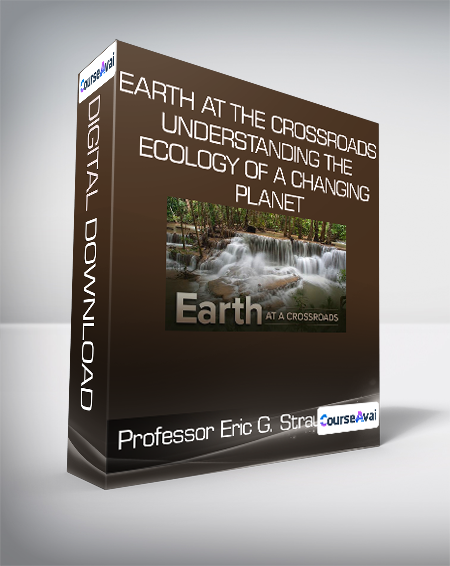
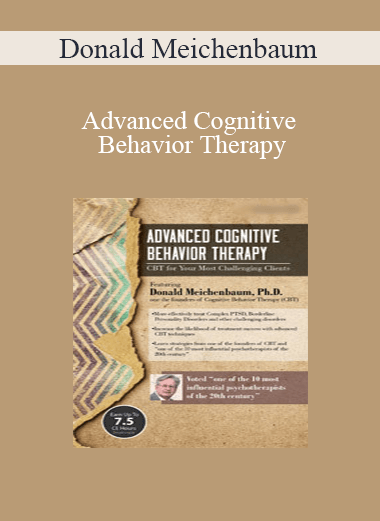
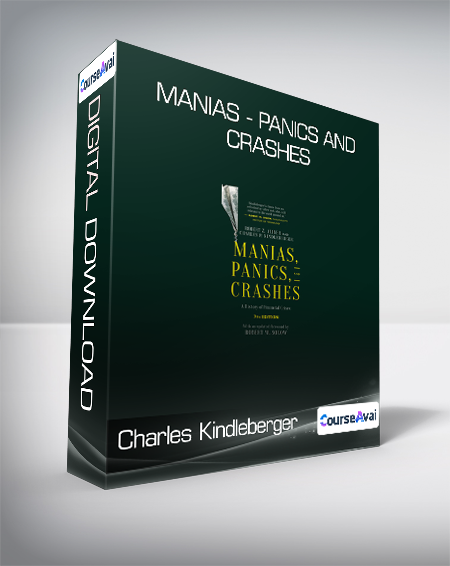
 Purchase this course you will earn
Purchase this course you will earn 
